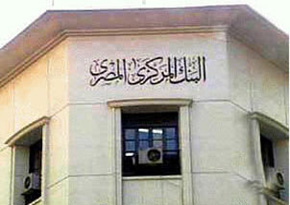 The Central Bank of Egypt will probably keep its key interest rate on hold for the sixth straight time, with urban inflation easing and core prices remaining within what economists describe as the bank’s “comfort zone.”
The Central Bank of Egypt will probably keep its key interest rate on hold for the sixth straight time, with urban inflation easing and core prices remaining within what economists describe as the bank’s “comfort zone.”
Urban inflation, the main rate monitored by the Cairo-based central bank, slowed to 10.5 percent in May from 11.4 percent in the previous month.
Food prices pushed the rate of core inflation, which excludes the prices of fruit and vegetables as well as regulated prices, up to 6.69 percent from 6.62 percent.
According to BusinessWeek, a chief Middle East economist at HSBC Holding Plc in Dubai Simon Williams said that “The benign May core inflation reading has strengthened our view that rates will be left on hold this month”
Central Bank of Egypt hasn’t publicly announced its inflation target.
Investment bank EFG-Hermes Holding SAE said in a note this week that the bank aims to keep core inflation in a “comfort zone” between 6 percent and 8 percent.
In its May 6 statement, the Central Bank of Egypt said that the level of interest rates was appropriate to support economic growth while maintaining price stability in the medium term.
Egypt’s economy, driven by tourism, manufacturing and construction, expanded at a 5.8 percent annual rate in the first quarter of 2010, Economic Development Minister Osman Mohamed Osman said in an interview on May 10.
Egypt's government expects a growth rate of more than 5 percent in the fiscal year that ends this month, compared with 4.7 percent the previous year.
Egypt’s benchmark EGX30 stock index gained 1.5 percent this year up to yesterday’s close in Cairo. Talaat Moustafa Group Holding, the country’s biggest real-estate developer, gained 15 percent.
Central Bank of Egypt is unlikely to raise interest rates before the fourth quarter of this year, Williams said. The Monetary Policy Committee meets every six weeks to review its decision.



